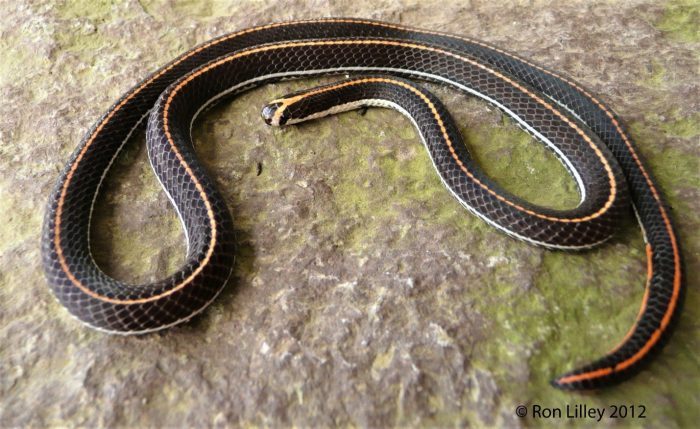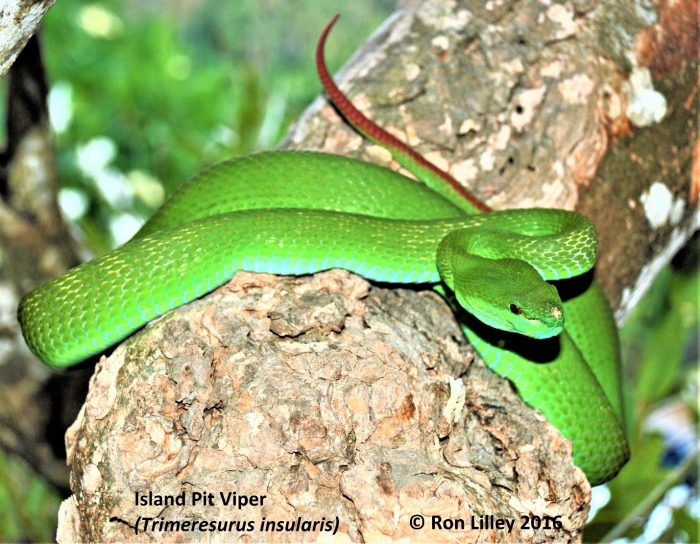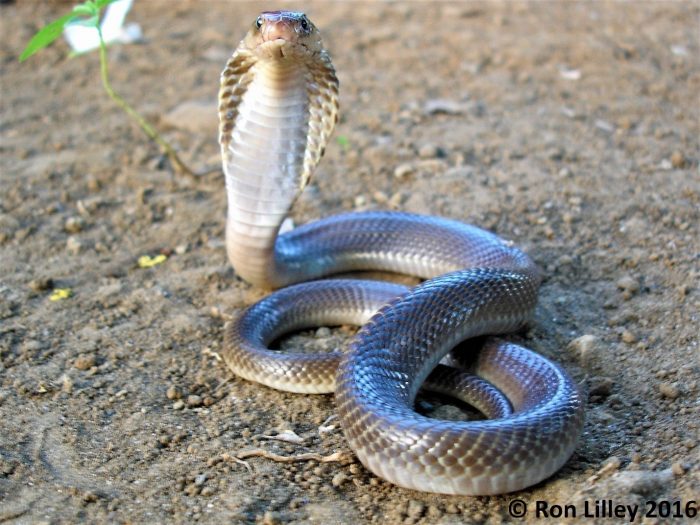Poisonous Snakes are Out in Bali! Stay Calm and Follow Ron Lilley’s Advice
Ron Lilley is, indisputably, the snake specialist of Bali. This distinguished Englishman offers snake rescues and snake-proofing advice to private homeowners, villas, and hotels.
He will come and visit, look around your property, and give recommendations to reduce the chances of snakes entering. Send him a picture of a newly found snake on your premises to get proper information on the risks to your family and pets. Ron Lilley also provides snake awareness meetings to schools and businesses and keeps records of snake localities and photographs of snakes in Bali.
Why are snakes out and about now that it’s the rainy season?
They tend to sleep and hide during the dry season. During these long months of inactivity, they need to find cool, dark, dry places to prevent overheating and conserve water. They can go without food for several weeks. When the rain finally comes, they go out to feed and mate.
What should we know to be able to avoid them?
First, we need to be aware that snakes are here in Bali. It’s far better to understand that there is a high probability of such an encounter. There are plenty of villas with gardens here, therefore holiday-makers and long-term residents need to know what they are getting themselves into.
In the end, when guests spot a snake, they feel threatened and want to move to somewhere safer, which is bad for business. The villa owners contact me to fix the problem and give them advice on how to snake-proof the place. Bring a serious, bright torch with you – not the one on your phone because that’s too weak – whenever you roam around at night in a garden. Most bites happen because people step on snakes at night, especially on overgrown dark paths – like vipers that hide in the bushes during the day but are on the ground at night. Cut any branches that touch the roof of your villa, as these provide highways for snakes and rats to get in. Also, be aware that the smell of birds, pups, or kittens will attract snakes.
Talking about snake-proofing, what can we do?
A compost heap right on the ground will make a perfect incubator for pregnant snakes! Keep your compost off the ground, in a closed box, for example. Keep all paths clear, including at head height so you can always clearly see the path ahead. Don’t leave anything stacked on the ground inside or outside the house. Avoid woodpiles, bean bag seats, toy boxes, and dirty clothes baskets. Remember: some snakes will be active during the day, while others will be hiding. But at night, they’ll be out on the prowl. Some will love to feed on the many small fish and frogs in your pond. Don’t sleep on the floor either!
Humans unknowingly provide shelter, food, and water for snakes. Rubbish and food supplies attract rats. Rats attract snakes. For generalist feeders like cobras, there are frogs, lizards, birds, rodents, and other snakes to feed on in a garden. Pythons live quietly on roofs. Once over two metres long, they’ll come down at night to prey on chickens or dogs!
How many different species of snakes are there in Bali?
Out of the 346 kinds of snakes recorded in Indonesia, 77 are venomous. Surely, more are to be discovered. In Bali, however, there are only 46 known kinds of land snakes, and only six of these are highly venomous: spitting cobras, king cobras, green pit vipers, two sorts of kraits (banded and blue), and the Asian coral snake which, contrary to what it seems, is a land snake. As for the blue krait, it’s not blue either, so don’t rely too much on colours, patterns, or common names for identification, as it can lead to serious mistakes! Looking at small pictures of snakes often leads to wrong identifications. Ask a specialist for advice by sending some photos – not videos – of the snake.
We can even find pythons in the busy cities of Sanur and Ubud. Once over 2.5 metres long, pythons can become a threat to humans, if not left alone. Even if they don’t strangle you, their non-venomous bites can still be very nasty!
How can we identify the dangerous ones?
It’s never obvious for a neophyte. There are simply too many variations for most people to recognise them. For example, spitting cobras come in various colours, have few markings, and look like many other snakes until they rise and spray venom at you. The sprayed venom is not dangerous as long as it doesn’t reach your eyes or a wound. If sprayed in the eyes, rinse them out with running water for 30 minutes, but do not rub, otherwise, you may go blind.
You have to know that, unlike the local dogs, imported foreign dogs are less experienced, and won’t be able to deal with a snake threat in your house. A local dog will bark if it finds a snake, but tends to keep its distance. The latter may go in for the kill, especially if it’s a hunting dog. This often results in the dog being bitten on the face or forepaws. Although it’s possible for a dog to recover if promptly treated by a vet, very strong dogs can even die within an hour.
People love to swim, surf, dive, and snorkel in Bali. What about the sea snakes?
Sea snakes in Bali are also not inclined to bite unless they feel threatened, but you still have to be careful. You might not have enough time to even reach the shore before drowning in the case of a venomous sea snake bite. These are very curious animals, and sometimes divers panic when they are too close. Stay calm, leave them alone – they know a human is too big to eat and they will have to surface to breathe. Two kinds of sea snakes come ashore to lay eggs on the rocks in Bali, so be careful on your nightly walks on the beach!
What should we do if we get bitten?
Stay calm and move as little as possible. Do not cut, do not suck, and do not use a tourniquet. These are the World Health Organisation guidelines. Immobilise the limb with a couple of bamboo sticks or pieces of wood to keep it straight. Don’t wait for an ambulance, but call ahead to your chosen hospital and inform them to expect a snake bite victim. Have somebody take you to the hospital as quickly as possible. Try to keep very still because movement helps to quickly spread the venom. Also, do not eat or drink anything, including medicines, as these might complicate the situation.
Where to go to seek help?
Ask nearby clinics, hospitals, and medical centres if they can treat snake bites, some will say they cannot treat snake bites. Sanglah public hospital in Denpasar has experience and training in dealing with snake bites. Keep the hospital or clinic number handy in case of emergencies!
Can we find anti-venom in Bali?
There is a lack of anti-venom in Indonesia, but Biofarma makes anti-venom available for three kinds of poisonous snakes in Bali. Unfortunately, in Bali, it will work only for the spitting cobra. Anti-venom is expensive and specific to each snake, which is why it’s very useful to be able to identify the snake responsible for the attack.
Always go straight to the hospital, even if it doesn’t have anti-venom, as the symptoms can be treated. For example, a krait bite will induce difficulty breathing, so you’ll be put under assisted breathing. The normal protocol after a snake bite is a minimum two-day stay in hospital. Therefore, it’s vital to have medical insurance. Dr. Tri Maharani is Indonesia’s leading snakebite specialist, and if the treating doctor calls her, she can determine the appropriate treatment based on the patient’s symptoms, without necessarily having to know the type of the snake.
This question might upset you, but is it fine to kill a snake if we come across one?
I have a lot of photos of freshly killed snakes sent to me with the question, “Is it dangerous?” Usually, it’s a harmless snake. It might seem logical to kill a snake if you see it, which is often done. However, many snake bites happen because people try to kill the snake. Significantly injuring a snake increases the risk of getting bitten. A disturbed snake becomes unpredictable and more dangerous. Keep in mind that even a chopped head is still venomous and can bite.
Killing a snake is not an option, but I like to think that I know how to deal with it safely. If you think a snake might be dangerous, have it identified by an expert. If it isn’t dangerous, consider allowing it to live in your garden – they can do much good in keeping rat populations down!
Ron is reachable via WhatsApp at +62 813 3849 6700 for you to send photos of snake identification, or seek snake-proofing advice and safety talks. Dr. Tri Maharani’s contact number: +62 853 3403 0409. Facebook: Ron Lilley’s Bali Snake Patrol




